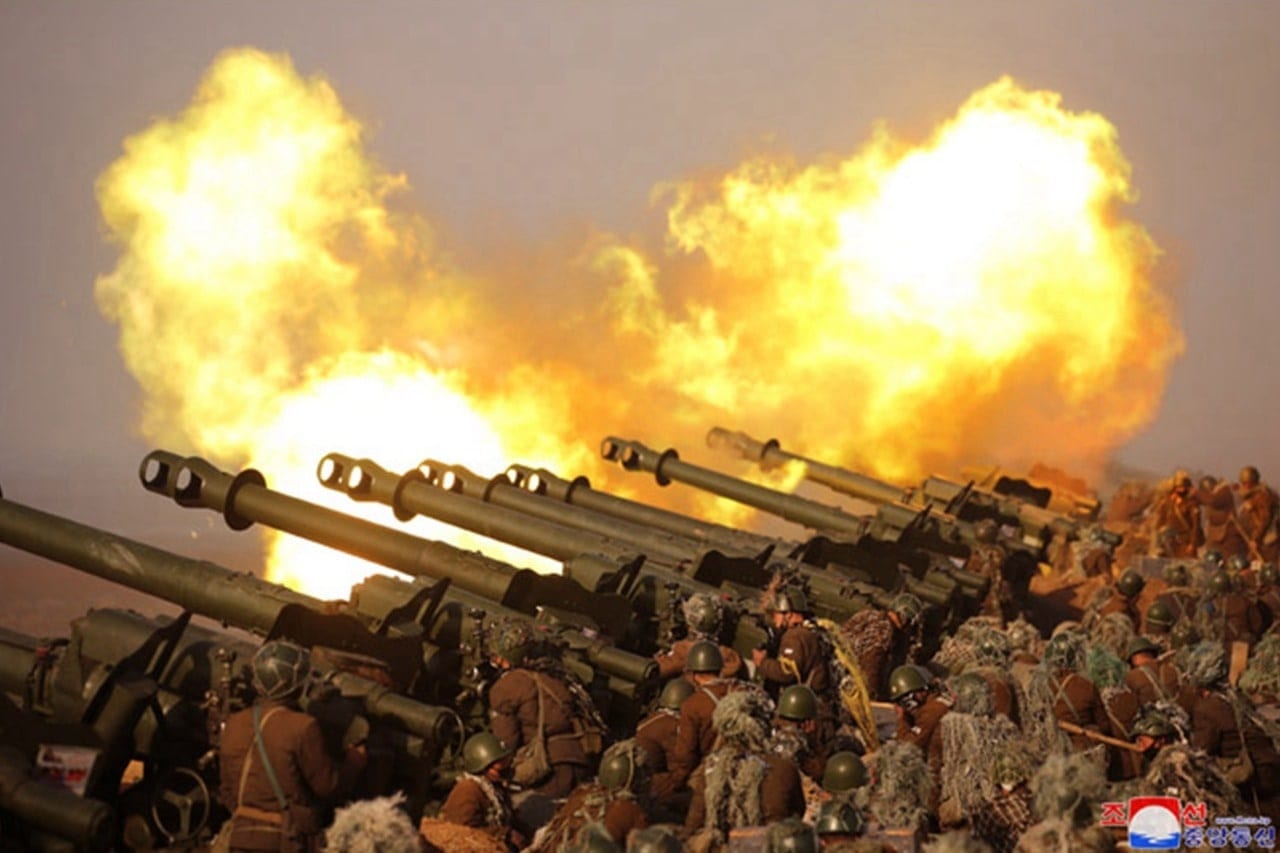North Korean leader Kim Jong Un will reportedly travel to Vladivostok this month to meet Russian President Vladimir Putin. The pair appears to be working toward an arms-for-technology deal that would see North Korea supply ammunition for the Russian military. In return, Russia would provide military technologies North Korea cannot develop itself — technologies likely related to Pyongyang’s nuclear missile program.
This is a fitting meeting for both leaders. Both govern effectively as gangsters. They rule in the mafia-style, relying heavily on family, friends, and other long-time associates. Both treat political opponents as competitors to be eliminated, frequently with great brutality to warn others against intrigue or deception. Both corrupt the institutions of their own country and the international institutions in which they operate. Both engage in rampant criminality — smuggling, trafficking, and fraud — to raise external funds. Both treat state resources as a personal slush fund.
North Korea is More a Mafia State than Russia
North Korea is further along this path than Russia, having been governed by one family since its inception. Kim Il Sung was its first leader. His son governed next, and now his grandson does. All the relevant politicking in Pyongyang is personalistic: who is up or down in the eyes of the elite, who is in favor or falls out of it. Analysts watch for who stands closest to the leadership in public appearances, and family members almost always play a role. Kim Jong Un’s sister, Kim Yo Jong, has emerged as a crucial regime personality, and his half-brother was considered enough of a threat to be murdered overseas by regime agents.
So rotted and ineffective are the formal institutions of North Korea — outside of the security services — that the country resembles a fiefdom more than a modern state.
Russia is not yet as bad, but it is sliding in this direction under Putin. After the death of Stalin, the Soviet Union was not governed in the personalistic style of North Korea. Rule was diffused through the oligarchy of the Politburo. This created something like institutions that stood apart from the individuals who held an office. For a brief period in the 1990s, Russia even had a genuine shot at democracy.
Putin, of course, snuffed that out. He brought back all the worst instincts of Russia’s autocratic tradition — the corruption, the court politics, the groupthink and isolation, the paranoia. His ruling network — the siloviki — resembles the expanded kinship elite at the top of North Korea. Like a good mobster, Putin now routinely has his opponents pushed out windows, just as Kim knocked off his brother-in-law.
A Politicized Mafioso State Becomes a Cult of Personality
When mixed with politics, this mafia style leads to a cult of personality. The traditional mafia do not wish to displace the state. Rather they wish to operate around it, or corrupt it if necessary. In the film The Godfather, Don Corleone’s hope was that his son, who stood outside the family business, could participate in politics as a “civilian.”
The elites of Russia and North Korea do not aspire to this. They mix gangsterism with politics, and the result is a cult of personality as the mafia don becomes the state’s permanent political leader.
This is most obvious in North Korea. While its original founders may have believed in Marxism-Leninism or Communism at the outset, Kim Il Sung quickly succumbed to the temptations of a personality cult. By the 1960s he was governing like a monarch, and statues of him were ubiquitous. The move to personalism elevated the role of family. Politics in North Korea became a dynastic struggle among Kim’s family and friends. By the 1970s, the North Korean monarchy began to act like a mafia-state, engaging in criminal enterprises to raise foreign currency it could not otherwise secure.
Putin has gone this direction too. He gradually eradicated Russian democracy. The country’s parties are now toothless. Elections are rigged. Putin has swapped the presidency and prime ministership to stay in power indefinitely and extended the duration of a presidential term to forestall elections. Corruption is endemic in the government.
Like will Recognize Like in Vladivostok
Putin and Kim govern in remarkably similar ways. They pretend to aspire to modernity but actually govern as feudal monarchs. They pretend to manage a country when, in fact, they corrupt and abuse it for narrow personal interests. They deal with opposition as inherently traitorous; opponents are murdered mafia-style. And they pretend to oversee an economy, when in fact they are pilfering it. Game will recognize game in Vladivostok.
Dr. Robert E. Kelly (@Robert_E_Kelly; RobertEdwinKelly.com) is a professor in the Department of Political Science at Pusan National University and 19FortyFive Contributing Editor.

